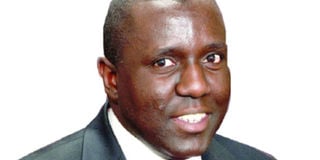It’s time to reform Bank of Uganda resolution practices

Karoli Ssemogerere
Bank of Uganda’s takeover and sale of Crane Bank Limited has spurred a lot of press attention, especially on social media. In 2017, BoU executed a sale of Crane Bank as a going concern to Dfcu for Shs200 billion. The sale diluted Crane Bank’s equity to zero, including a last minute injection of Shs23 billion. It carried contingent asset transfer of Crane Bank’s bad debt loan book whose final value is unpublished, but is in the range of Shs1 trillion.
Crane Bank, Uganda’s 5th largest bank at the time with record profits over the years in the end, was swallowed by Dfcu now the 2nd largest bank. Dfcu, an upscale bank, has had trouble digesting Crane Bank, which had a broader retail and downmarket clientele, not exactly Centenary Bank, but close.
Dfcu has had to close many of the branches carrying low margin, high traffic customers yet they comprise the hard-to-reach population.
Dfcu also had another incentive to close these branches, many of which were housed in structures owned by Meera Investments, which is still owned by Sudhir Ruparelia. In fact, Sudhir owned “more” of Meera than Crane Bank.
Auditor General has raised some noise on certain payments made by BoU to a number of third parties, lawyers, consultants, etc., and the lack of interest on the purchase price payable over 24 years.
Auditor General has not pronounced himself on the terms of the bad loans transferred under separate terms to Dfcu whose owners famously defaulted and ran into the arms of the State for protection and are still running these businesses unlike Crane Bank, which lost its licence.
Auditor General only scratched the surface of the various conflict of interests that made the taxpayer poorer for the return in the Crane Bank sale.
Lastly, Auditor General, who represents the institution of Parliament, failed to recommend a way forward to avoid snafus like Crane Bank, which in the case of a larger bank [just like Dfcu] is today, can cause a systemic meltdown and loss of confidence in the banking sector.
Right now, loss of confidence has hit smaller banks, which are being hit by a hostile economic environment hampering their capacity to lend and indirect subsidies enjoyed by the bigger banks, which have access to government credit, accounts, offshore credit, etc.
It is important that two key functions of resolution of a bad bank require ethical and legal safeguards against abuse. These are deposit insurance (where the bank) is liquidated, which is a cost to the regulator as claims must be settled to the full face value of the deposit insurance.
The second is management of non-performing assets, which BoU has failed to establish a rigorous timetable to return them to either the regular economy or write them off. It is shameful that Cooperative Bank depositors are still out 20 years after its closure and Greenland Bank liquidation is still active 20 years after its closure.
Using the same parameter, the big borrowers who strangled Crane Bank, still have 20 years to negotiate their bad loans with the successor entity which has a right to reject these loans and return them to BoU.
Somehow, BoU, long a fortress of ability, has seen hard times.
A meritocratic system of hiring talent established at its founding has collapsed alongside other major institutions in Uganda. The Bank lacks clarity and does not inspire confidence in its work falling many steps below its neighbours in Rwanda, Kenya and Tanzania.
Lastly, the Bank seems to have neither the political will nor an idea how to tackle money laundering, abuse of financial institutions to transfer ill-gotten wealth which is shaking the foundation of the economy.
The President, tongue in cheek, isn’t sleeping chipping away its prerogatives. He has come close and will prevail, for instance, in printing the currency in Entebbe.
Mr Ssemogerere is an attorney-at-Law and an advocate. [email protected]




